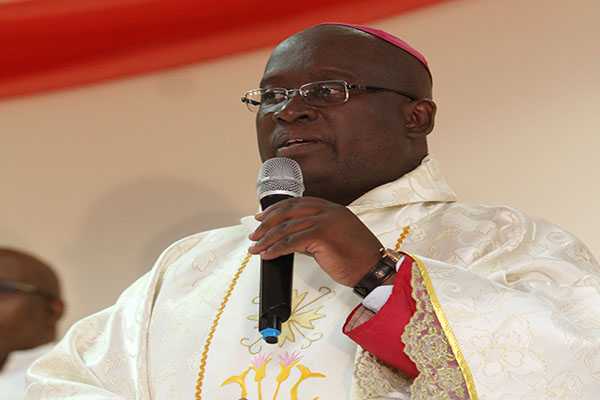Catholic Church Diocese of Gaborone says no to EVM
The Catholic Church leader from the Diocese of Gaborone, Bishop Valentine Tsamma Seane has advised the government and leadership to take heed of the cry of the nation not to use the voting machine and take more time to do an intensive need analysis consulting all stakeholders.
Through the pastoral letter he wrote to the nation regarding the introduction of the voting machine (EVM) he says they are still waiting for valid reasons for the introduction of the voting machine. “After listening to the Electoral Commission and other discussions concerning the machine I still have no reason why it should be introduced.”
Seane believes any change to the practice that has been highly appreciated for years should have very strong, valid reasons to support the change being contemplated or anticipated. He said there must be adequate material which should inform the process towards the adoption of voting machine. An optional approach to deciding on the adoption of new technology or process should commence with undertaking of comprehensive needs analysis.
“A need analysis should involve a thorough and careful assessment of the existing process, in this case, the process of voting and counting of the results, to determine the advantages and benefits and disadvantages and risks of the existing process of voting and counting. This analysis would then inform whether a need, or business case, exists for consideration of the introduction of alternative technologies or process so as to improve on and potentially strengthen the weakness and risk present,” he said.
The need analysis would also include both primary and secondary research. The primary research component would include interviews and focus group discussions with electoral practitioners. Second research would include analysis of existing databases and documents detailing electoral processes and performance from previous elections. The end result should provide for an evidence-based analysis of existing electoral process.
“This will inform many of us who want to know the valid reasons for this change,” he said. Bishop Seane emphasised that Botswana has a small population of 2.2 million and counting the votes manually has been acceptable and practical. “Using the new voting machines is more expensive than counting manually, and as a country we have not had a serious delay of results because of counting manually in the past elections”.
He stated that the voting machine can be tampered with since it is manufactured and programmed by a human. “This is a big loophole and is a valid reason not to introduce voting machine. There is no feedback or proof to the one voting that he did vote. All trust is placed on the machine.”
He said that very populated states like India who had a valid reason to try voting machine are still struggling to improve the one they put in use because of not being accurate and having many challenges. “Irrespective of that, they keep on looking for more advanced machines because they still experience a lot of problems using voting machines.”
He cited that socio-economic and political change in the world today make the timing of introducing the voting machine too suspicious. “The voting machine will be a point of contention no matter what kind of results we get and will become the way of dividing the nation and putting our peace at risk” said the Bishop.
The technical specifications and requirements based on the needs and feasibility analysis may reveal that existing available e-voting products (voting machine) do not adequately match one’s technical specifications. He believes if a needs analysis and feasibility study have not been undertaken, there is a real possibility that the commission may be unduly influenced by vendors selling the voting machines at the time a vendor driven decision, rather than national driven premised on a careful and detailed analysis and technical specifications.
“Assuming that the outcome of the feasibility study, including consultation with key electoral stakeholders, indicates that on balance it would be advantageous to pursue a particular type of voting machine, compared with the existing counting manually method, the next step in the decision making process would involve piloting the preferred technology or type of voting machine,” says Seane.





